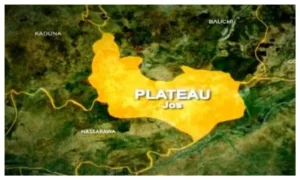Governor Nyesom Wike has openly criticized Arise TV for what he described as false and misleading stories about his administration. The confrontation occurred during an interaction with an Arise TV reporter, where Wike did not hold back his frustration over the station’s reporting.
Wike accused the news station of publishing inaccurate reports that misrepresented his government’s policies and actions. He claimed these stories were damaging not only to his administration’s image but also to the public’s perception of his leadership. According to the governor, some media outlets, including Arise TV, have failed to uphold journalistic standards by prioritizing sensationalism over factual reporting.
In his remarks, Wike emphasized the critical role of the media in shaping public opinion and fostering transparency. He urged Arise TV and other media platforms to adhere to the principles of accurate and unbiased reporting. “Journalists must ensure they verify their information before publishing,” he said. “Spreading false stories can mislead the public and harm reputations unnecessarily.”
This incident sheds light on the recurring tensions between political leaders and media organizations in Nigeria. Politicians often accuse media outlets of being biased, while journalists argue that they face undue pressure from public officials. Wike’s clash with Arise TV highlights the broader issue of accountability and professionalism in Nigeria’s media landscape.
The confrontation serves as a reminder of the importance of ethical journalism. Media outlets are expected to report the truth, providing the public with reliable information while holding leaders accountable. However, when news platforms prioritize sensational headlines over verified facts, trust in the media begins to erode.
https://www.youtube.com/watch?v=yGU6_QbhzZs?si=s_Z9qiNP_5P1Q9XQ







